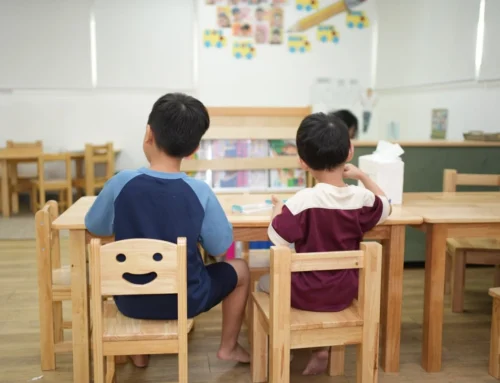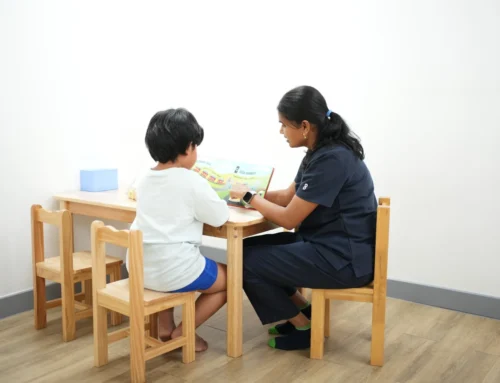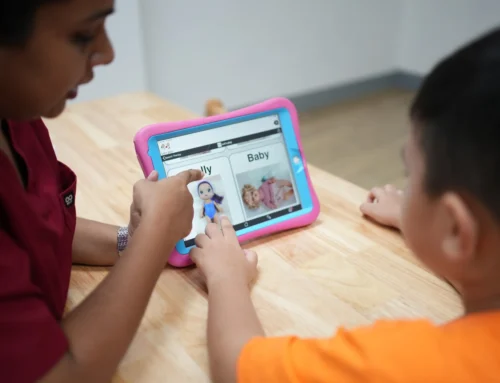When a child struggles to say words clearly despite knowing exactly what they want to communicate, parents often wonder if it’s more than a speech delay. Childhood Apraxia of Speech (CAS) is a rare motor speech disorder where the brain has difficulty coordinating the movements of the lips, tongue, and jaw to produce sounds. In Phnom Penh and across Cambodia, awareness of CAS is still limited, which makes early recognition and therapy crucial for children’s long-term success.
Signs of Childhood Apraxia of Speech
CAS presents differently from other language difficulties. Some of the most common signs include:
-
Inconsistent speech errors – the same word may be said differently each time.
-
Difficulty with longer or more complex words compared to shorter words.
-
Visible struggle to form sounds, sometimes with groping movements of the mouth.
-
Limited sound inventory, fewer consonants and vowels than expected.
-
Better comprehension than expression – children often understand far more than they can verbally say.
It’s easy for parents in Phnom Penh to mistake CAS for a general speech delay. That’s why proper evaluation matters. Reading resources like What is Speech Therapy? helps families understand the difference between various communication challenges.
Assessment for CAS
Diagnosis of CAS requires a detailed speech and language assessment by a trained professional. At OrbRom Center in Phnom Penh, assessments typically include:
-
Observing how a child attempts different sounds and syllables.
-
Testing oral-motor control and the ability to imitate sounds.
-
Reviewing consistency of errors across repeated attempts.
-
Collecting parent and developmental history to guide intervention.
Because CAS can overlap with other conditions such as autism or developmental language disorder, a structured assessment ensures that therapy targets the right areas. For example, families often first explore communication difficulties through guides like What Happens During an Autism Assessment?, which highlight the value of early evaluation.
See our Phnom Penh-based services here: Assessments
Treatment Options
The most effective treatment for CAS is specialized speech therapy focusing on motor learning and frequent practice. Strategies include:
-
Repetition and intensive practice of targeted sounds and word sequences.
-
Multisensory cues, such as visual hand signals, tactile prompts, or visual cards to reinforce movements.
-
Gradual progression, starting with simple words and expanding to longer phrases.
-
Parental involvement, with home practice to strengthen progress between sessions.
Some children may temporarily use AAC (augmentative and alternative communication) to reduce frustration. Importantly, consistent therapy helps children in Phnom Penh gradually build clearer, more confident speech. Learn more about our Speech Therapy programs.
Related Learning for Families
Parents supporting a child with CAS may also find the following resources helpful:
-
Special Needs Kids Learn to Read Facial Expressions – to support social communication.
-
Teaching Strategies for Students with Dyslexia – useful when literacy and language difficulties overlap.
-
Parenting an Autistic Child – guidance for families navigating complex developmental needs.
-
What is Occupational Therapy? – to strengthen the motor and sensory skills that often support speech.
Conclusion
Childhood Apraxia of Speech is not just a simple delay but a motor planning disorder requiring specialized therapy and consistent family support. For parents in Phnom Penh, accessing professional speech therapy and assessments at OrbRom Center can make all the difference. With the right help, children with CAS can learn to communicate clearly and confidently — opening the door to stronger learning, friendships, and independence.
We are the only Preschool specialized on children with special needs in PhnomPenh.
- Internationally qualified teachers
- Cambodia’s largest sensory room
- Outdoor swimming pool
- Covered outdoor playground
📞 Phone: 077.455.993
Telegram Link: https://t.me/OrbRom





